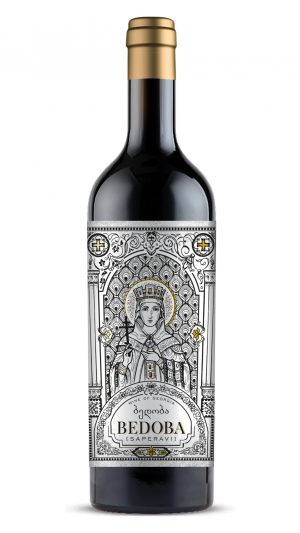Bedoba Orange Kisi Rkatsiteli 2021
Type: Orange Wine
Country: Georgia
Region: Kakheti
Grape Variety: Rkatsiteli, Kisi
Alcohol Percentage: 13%
Viticulture: Natural Wine | Organic Farming | Vegan Friendly
Climate: Conditions here are typically influenced by the nearby Caucasus Mountains, which allow a dry harvest with mild temperatures during the day but with rather cold nights, ideal for the avoidance of any type of rot
Terroir: The Rkatsiteli vines are 25 years old growing on deep blue slate soil, which gives the wine a terroir character. Kisi is from a younger vineyard with limestone and a cooler microclimate
Ageing: Rkatsiteli is partially (60%) fermented (whole bunches) and matured in Qvevri amphora. 10% of the Rkatsiteli is fermented in Qvevri and matured in 225L barrique. The Kisi is de-stemmed and fermented in temperature-controlled steel tanks, filtered after alcoholic fermentation to prevent malolactic conversion
Color: Orange jam
Nose: Aromas of dried apricots, honey, orange peel with light herbal hints
Palate: Enchanting flavours of dried apricot, honey, orange peel, mountain herbs and hints of tannins. Captivating complexity and texture
About the Winery:
Bedoba means `Day of Luck’. Winemakers Nugzar Ksovreli and Thierry Fontannaz found inspiration in the history and legacy of the winery’s founders, the Konchosvilli family, whose cellars date back to 1737. The label references the bishop Petre Konchoshvili, a prominent religious and political figure of the 19th century, and honours the long-standing relationship between the family and the church – `koncho` means cross.
With an average age of 30 years, the Saperavi vines behind Bedoba are planted in the renowned wine region of Kakheti, near the eastern border with Azerbaijan in the Kvareli and Kindzmarauli appellations along the Duruji River valley. The soils here are rich in black shale, and the southern slopes of the Caucasus Mountains provide altitudes of over 400 metres above sea level, bringing fresh acidity and soft tannins. Sustainable and organic practices are observed, as well as hand-harvesting and careful sorting of the dark-skinned and red-fleshed Saperavi grapes.


